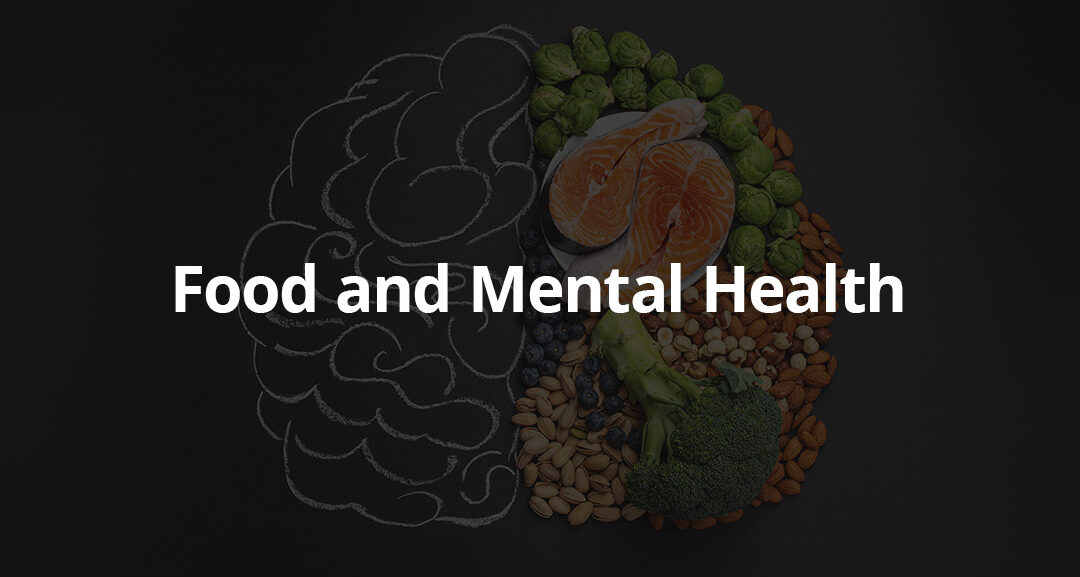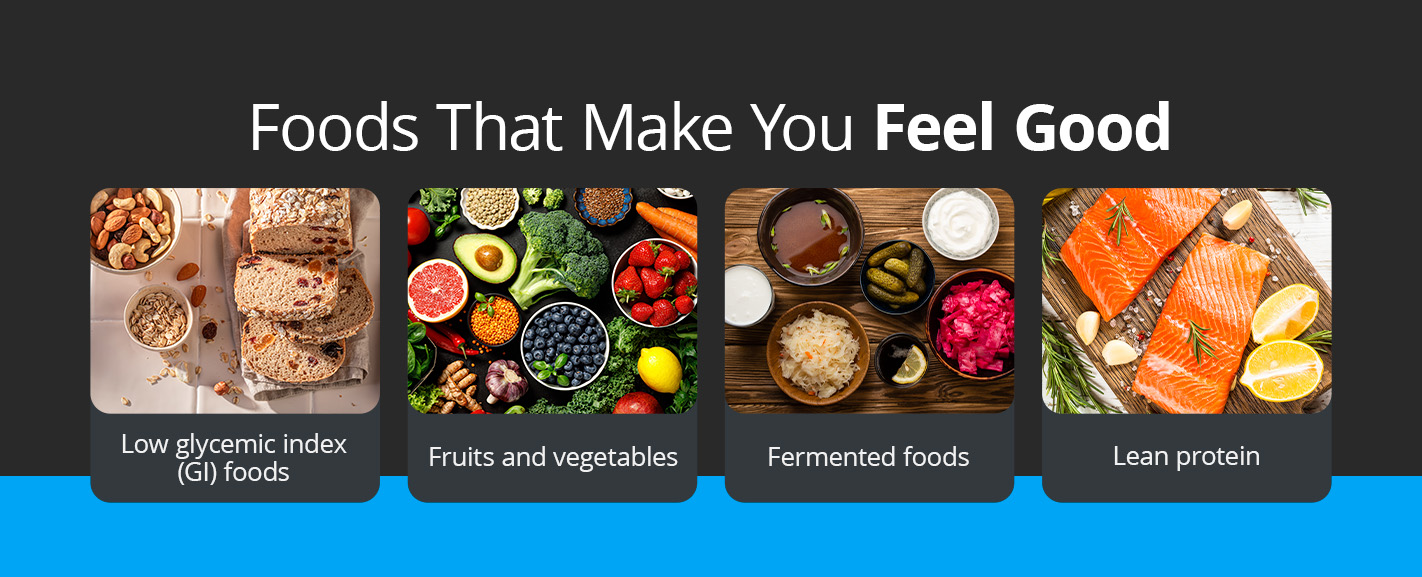Your eating habits and mental health are closely linked, and you can improve how you think and feel by prioritizing a healthy diet.
How Food Affects the Body and Mind
Food has a direct impact on your body and brain. Eating well-balanced meals is key to getting all the vital nutrients that fuel your natural functions. The body and mind are directly connected, and what affects one easily affects the other. The brain needs fuel like any other part of your body, and the higher quality foods you consume, the better your brain functions.
How Do Processed Foods Impact Mental Health?
Processed foods are loaded with sugar, salt, and artificial ingredients that can leave you feeling sluggish, lethargic, and down. One study on processed foods and mental health shows that eating nine or more daily servings of ultra-high-processed foods — including snacks, frozen meals, and foods that contain artificial sweeteners — can increase your risk of depression.
Blood sugar levels also play a key part in regulating mood. Eating causes our blood glucose levels to fluctuate. A diet consisting of highly processed foods causes drastic spikes in glucose levels, which can lead to mood swings. On the other hand, eating balanced, healthy foods can help stabilize your blood sugar, improving your energy levels and mood.
Nourishing the Mind: Foods That Boost Mental Health
Food and your mood go hand in hand — and this means you can eat to boost your mental health! Choosing nutritious foods gives your body and brain the fuel you need to feel better. Look for foods that contain adequate amounts of these essential nutrients:
B Vitamins
Vitamins and minerals are the building blocks of nutritious foods, and you should aim to consume a wide range throughout the day. B vitamins are especially important for boosting mental well-being. They can have a positive mood-altering effect, as vitamins B12 and B9 (folate) are essential for your brain, supporting serotonin and dopamine production. Because of this vital function, vitamin B deficiencies can lead to anxiety and depression.
Vitamin D3
Vitamin D is a fat-soluble vitamin that is important in regulating mood and helping you feel your best. A vitamin D deficiency can increase the risks of mental health struggles like feeling anxious or depressed.
Omega-3 Fatty Acids
Omega-3 fatty acids are key for healthy brain development and function. They are also essential for heart and mental health. Preliminary research shows that omega-3 fatty acids can stabilize mood and may improve some symptoms of mental health disorders, including bipolar and depression.
Magnesium and Zinc
Magnesium is a mineral that helps keep muscles and nerves healthy. It also positively impacts blood sugar and energy production, which are both closely linked to mood. One of the many benefits of zinc is also regulating blood sugar levels. Some studies have also investigated the therapeutic potential of magnesium and zinc benefiting individuals with bipolar disorder.
Antioxidants
Antioxidants are amazing molecules that fight harmful free radicals in our bodies. Antioxidants can help reduce inflammation in the body, which can help lower stress levels.
Foods That Make You Feel Good
Check out these foods that can improve how your body feels and functions:
- Low glycemic index (GI) foods: Low-GI options, such as whole grain bread, quinoa, legumes, and nuts can help your body stabilize blood sugar and release energy more slowly.
- Fruits and vegetables: These foods are excellent sources of a range of vitamins and minerals. They are also high in antioxidants. Try to include the full rainbow of colors when incorporating fruits and vegetables into your diet.
- Fermented foods: Your brain and gut are closely linked, so having a healthy gut biome can help boost your mental health. These foods include yogurt, sauerkraut, kimchi, and pickles.
- Lean protein: Protein contains amino acids that help our bodies produce neurotransmitters that can prevent and treat anxiety and depression. Lean protein, like fish, is also high in omega-3 fatty acids.
Tips for Improving Your Diet and Mental Health
You can improve your mental well-being by following a healthier diet. Try these tips to start your journey to better eating:
- Try meal prepping. Preparing your meals in advance can help you have healthy foods throughout the week without worrying about the time it takes to prepare them after a long day. Meal prep also helps you be more mindful about making them as nutritious and balanced as possible.
- Have a list of go-to healthy meals: Meal-prepping isn’t for everyone. If this is the case for you, having a list of healthy go-to meals is key. Your list can help you when you are lacking inspiration. Try to stick to simple meals you enjoy and can cook easily.
- Choose healthy snacks: Nutritious snacks that satisfy your cravings will make a noticeable difference to your energy and mood.
- Make flavorful food: Enjoying your meals is also important for your mental health! Healthy foods never have to be bland and unenjoyable. Incorporate your favorite foods in moderation, and use seasonings and special cooking techniques to make your meals more flavorful.
- Practice mindful eating: Being grateful for your food and present while eating makes meal times more satisfying. Mindful eating can also help you digest your food better as you take your time chewing and swallowing.
- Hydrate: Enhance your healthy diet with proper hydration. Drinking water can improve your brain health by promoting blood flow and oxygen, which improves cognition and concentration. If you struggle to drink enough water, try adding fruit or a squeeze of lemon to make hydration more enjoyable.
Boost Your Mental Well-Being With Merrimack Valley Psychological Associates
What you eat affects your mental health. A healthy food journey can lead to better mood, cognition, and well-being. However, every journey is unique, and changes don’t always happen overnight. If you or someone you love is interested in improving their relationship with food or their overall mental health, the compassionate clinicians at Merrimack Valley Psychological Associates can help.
Our team is here for you with counseling services in the Merrimack Valley and Andover. As mental health professionals, we understand that mental health is intricate and layered and that there isn’t a quick fix or one sole way to combat challenges like anxiety and depression. We will work with you to develop the right tools you need to cope.
If you need support and guidance in your mental health journey, contact us today to schedule an appointment.



